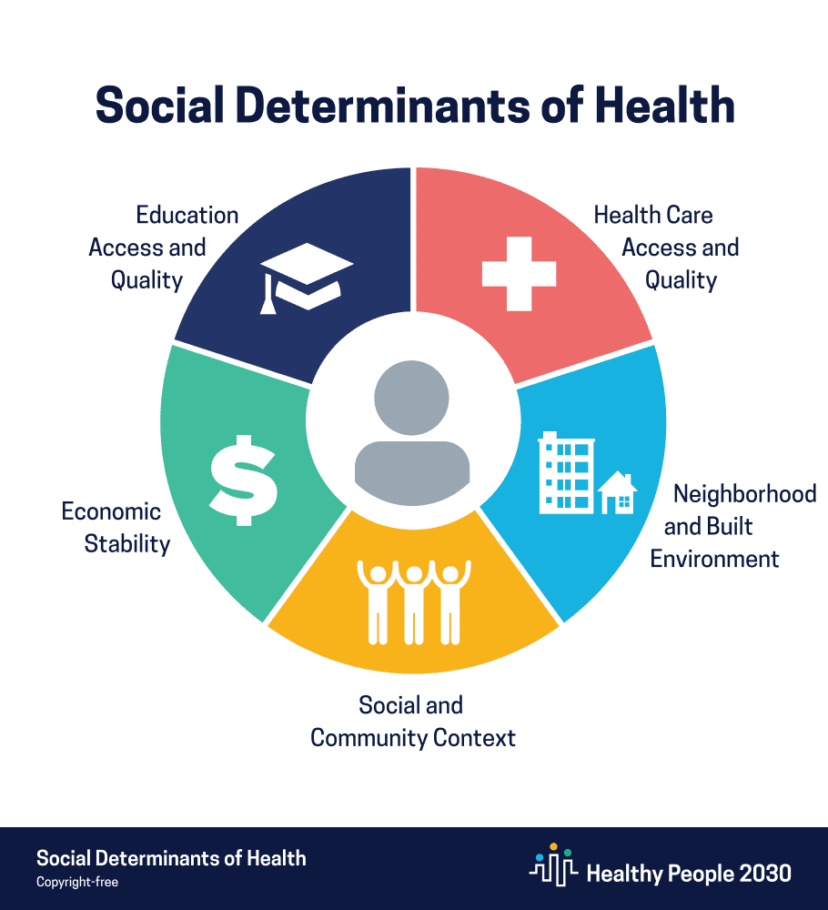Social Determinants of Health
SDOH addresses where you Live, work, eat, play, and Age

Why Is This Important?
The Social Determinants of Health break into six different categories: Economic Stability, Neighborhood & Physical Environment, Education, Food, Community & Social Context, and Healthcare System.
These six categories help understand the factors that affect an individual's health. It is important to understand these factors so that we as a community can help protect and solve our lives.
The key to using SDOH is to use the data collected to prevent these issues. According to NexisLexis: Risk Solution, “The ethical use of SDOH data is predicated on improving the health of individuals and providing the right interventions and services at the right time.”
UPOH's Commitment to Health Equity through SDOH
United Providers of Health firmly believes that addressing the Social Determinants of Health (SDOH) is of paramount importance in the pursuit of comprehensive healthcare. Recognizing that health outcomes are not solely determined by medical interventions, UPOH champions the understanding that factors such as socioeconomic status, education, housing, and access to nutritious food significantly influence an individual's well-being. By acknowledging the impact of SDOH, UPOH strives to bridge gaps in healthcare disparities and create a more equitable healthcare system.

Economic Stability
Employment
Income
Expenses
Debt
Medical Bills
Support
Neighborhood & Environment
Housing
Transportation
Safety
Parks
Playgrounds
Walkability
Education
Literacy
Language
Early Childhood Education
Vocational Training
Higher Education
Food
Hunger
Access to Healthy Options
Social & Community Context
Social Integration
Support Sytem
Community Engagement
Discrimination
Stress
Healthcare System
Health Coverage
Provider Availability
Provider Linguistic and Cultural Competency
Quality of Care
Is addressing SDOH your passion?
Contact us for more information!
